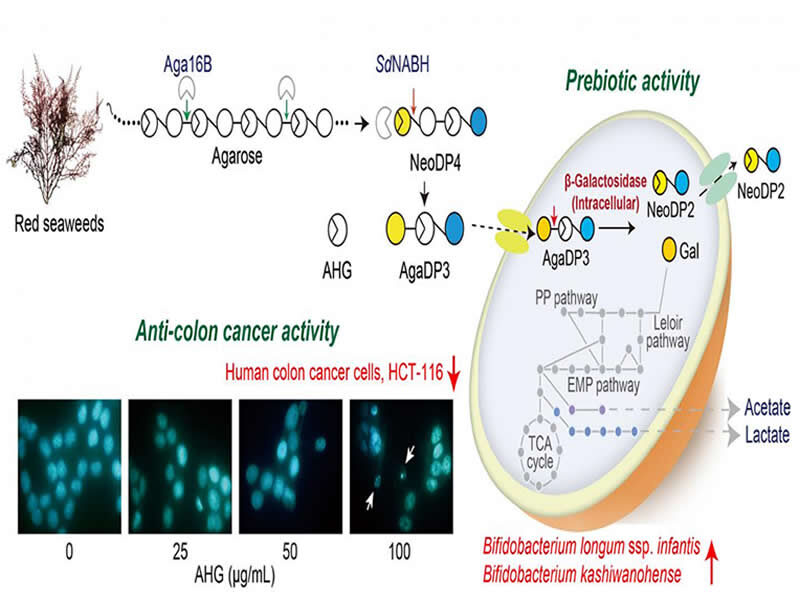For thousands of years, red seaweeds have been a staple in the diets and lifestyles of Asian communities. Researchers have demonstrated that these algae can provide health benefits in a new study published in Marine Drugs.
“In the past, people have wondered why the number of colon cancer patients in Japan is the lowest in the world,” said Yong-Su Jin (CABBI/BSD/MME), a professor of food microbiology. “Many assumed that it was due to some aspect of the Japanese diet or lifestyle. We wanted to ask whether their seaweed diet was connected to the lower frequency of colon cancer.”
Many studies have shown that seaweed consumption is associated with a lower risk of breast, colon and colorectal cancers in Asians. However, it’s not clear which ingredient was responsible.
The researchers used enzymes to break down different types of red seaweed and then tested which sugars were most beneficial for health. The most promising sugars were agarotriose (3,6-anhydro L-galactose) and AHG (3,6-anhydro L-galactose).
“After we produced these sugars, we tested their prebiotic activity using the bacteria Bifidobacterium longum ssp. infantis,” said Eun Ju Yun, a former postdoctoral researcher at the Carl R. Woese Institute for Genomic Biology. B. infantis is a probiotic bacterium; it colonizes the gut of infants and provides health benefits. Among the seaweed-derived sugars, the bacteria could only consume agarotriose, indicating that it works as a prebiotic i.e., it improves the growth of probiotic bacteria.
“We also tested another strain, B. kashiwanohense, and found that it also consumed agarotriose,” Jin said. “These results show us that when we eat red seaweed, it gets broken down in the gut and releases these sugars which serve as food for the probiotic bacteria. It could help explain why Japanese populations are healthier compared to others.”
Researchers also tested red seaweed sugars for anti-cancer activity. Yun stated that AHG is able to inhibit the growth and spread of colon cancer cells in humans. It does not affect normal cell growth. AHG’s ability to induce apoptosis, or cell death, is what gives it its anti-cancer properties.
Kyoung Heon, a professor in biotechnology and co-advisor to the paper, stated that there is much information about how red seaweeds can be degraded by microorganisms found in the ocean and in humans. Our work provides the molecular mechanism that explains why red seaweeds can be beneficial. We will continue to study their function in animal models, and hopefully we can use them as therapeutic agents in the future.
Related Journal Article: https://www.mdpi.com/1660-3397/19/4/213

